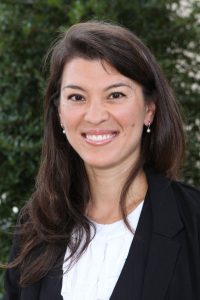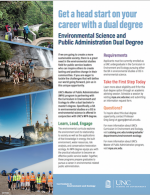As the Executive Director of the Research Triangle Cleantech Cluster, Susan Sanford leads an organization dedicated to accelerating the growth of the Research Triangle’s cleantech economy.
By concentrating resources in the Triangle for the clean technology sector, which focuses on using data to improve energy efficiency, Sanford and her organization aim to create an incentive to attract cleantech investment in the area.
“We market the region so that cleantech companies will want to move here and create more jobs,” said Sanford.
Once they make their home in the Triangle, Sanford and the RTCC work to promote collaboration and partnership between these organizations, thereby fostering an innovative, growing environment for the local cleantech economy.
But with more than 350 cleantech companies in the region to support, Sanford definitely has her hands full.
On any given day, Sanford and her team can be found implementing programs to showcase innovation in the region, creating budgets, engaging with stakeholders, and working to connect cleantech companies with their peers, as well as with universities, local governments, and developers.
And though technical knowledge of the industry enhances her effectiveness, Sanford says the bulk of her job requires a broad understanding of economic development – a field she delved into during her time with the MPA program.
“So much of what we learned in class is relevant, but what has stuck with me most in my career was learning how to understand and address the needs of different communities,” said Sanford.
After graduating from the program, Sanford put this knowledge to good use when she joined RTCC as the Director of Membership Development and Engagement.
Through her work supporting and engaging the area’s cleantech companies, Sanford said she drew on her education in economic development.
“We learned how different communities – for example, rural and urban communities or public and private organizations– play different roles in economic development,” said Sanford.
“So I use that approach in my job to understand what each stakeholder needs and how to tell a larger regional story that draws on the strengths of our deep and diverse assets.”
For Sanford, her work in economic development helped bridge the two worlds of environmental science and public administration.
“Our vision for economic growth is very industry-specific with cleantech, so it is important to be able to explain what the industry can provide in terms of job creation and improving quality of life for communities and to tailor those messages for specific audiences, including public officials, who can then support their staff.”
Knowledge of the environmental and public sectors helps Sanford build strategic support for the RTCC’s vision, a task she continues to work on as Executive Director.
Sanford expects that incoming bachelor’s-master’s students will find a wealth of similar experiences once they enter the job market.
“Increasingly, the industry wants blended skill sets. Professionals who have both technical skills and “soft skills,” including marketing, sales, communications, and leadership,” said Sanford. “I believe students in this program will be well-positioned for hires once they graduate.”
“Environmental issues are driving the growth of this industry globally. As populations increase, people move to urban areas, infrastructure declines, and climate changes, these factors all point to there being an abundance of jobs in the cleantech industry to address these challenges.”
And though these challenges remain, Sanford’s degree helps her to rise to the occasion, leading the fight for a stronger, cleaner local economy.
“Having a public administration education really enables me to work with different stakeholders and to manage my organization and team, so we can be effective in creating jobs in our region.”


